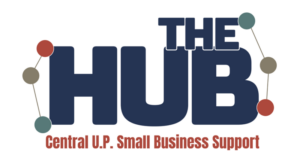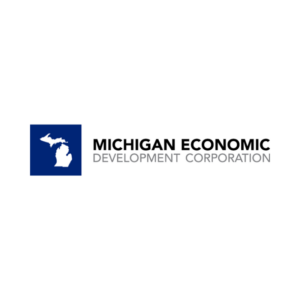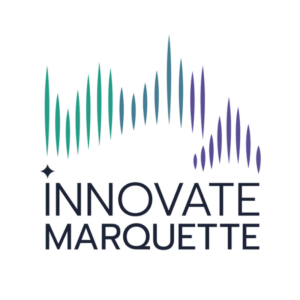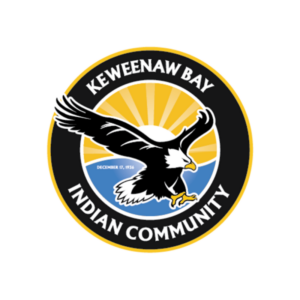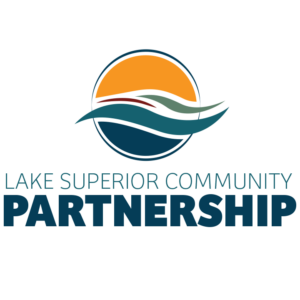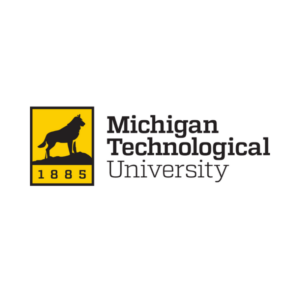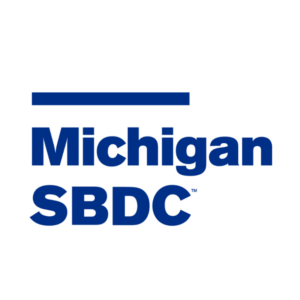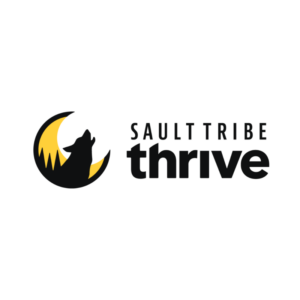The Small Business Support Hub’s second direct grant application window is open from January 17 through February 14, 2025. The links below provide additional information for potential applicants to review:
- Winter 2025 Direct Grant Webinar with Erica Huss
- Introducing Cybersecurity into your Small Business with Doug Miller
- Navigating the “New Google” with the SBDC
- Elevate Your Small Business with Brooke Quinn
- Direct Grant Overview Webinar with Erica Huss
*These resources do not replace the grant requirement to attend a HUB sponsored event, program, or training
Frequently Asked Questions
If you consider yourself a small business, then you are likely eligible to utilize the Hub. The MEDC uses a definition of any business with less than 500 employees which covers 99% of businesses in Michigan. The Hub will work with businesses in any industry and at any stage of its development. Program requirements also include that all businesses must have been impacted by COVID-19; the entire seven county region of the Hub falls within a geographic definition of impacted communities.
Administrative overhead is common in grants and a real cost to any organization implementing a grant-based program. However, due to federal restrictions, no funds from the grant can be used for administrative overhead. Instead, the LSCP will operate the Hub as an essential part of its 2024 – 2026 Strategic Plan focus area for Retaining and Growing Businesses. Over the course of the three years, approximately 14% of the funds will flow directly to five strategic partners in return for expanding access to their programming to support the Hub’s efforts; those funds may end up in operational budgets depending on each organization’s financial processes and strategies.
As of 8/12/2024, the Hub is fully operational. A Hub Program Manager and four Small Business Resource Navigators have been hired to cover all seven counties in the Hub. The Hub Advisory Council meeting occurred in July and will be meeting again in August to finalize the direct grant criteria and application. The Main Street Academy, developed by Northern Michigan University’s College of Business, will be collaborating with the Hub’s Navigators to match interns with Hub participants to receive assistance and support.
Funds from the MEDC are committed for three years so the Hub will operate at least through the end of 2026. Part of our mission is to sustain as much of the Hub as possible following expiration of the funds.
The Hub is intended to complement, not replace, local economic development organizations. Oftentimes in rural areas, a local EDO is staffed by a single individual who is focused on strategic economic goals and simply doesn’t have enough capacity to support every single business. The Hub will help local EDOs expand their capacity to support local small businesses specifically. Local EDOs will have regular communication with their Hub Navigator and work hand-in-hand to plan local events and customize resources. Several EDO’s and affiliated agencies will supply Small Business Resource Navigators with office space to work out of when in their County.
Applicants will be notified whether their application has been selected to receive a reward within 45 days of the application window closing. The Hub reserves the right, at its sole discretion, to reject an application if it:
- Does not meet the program requirements, including scope, eligibility, and allowable grant dollar use.
- Is received after the deadline.
- Is incomplete or missing any of the required forms, narrative, and budget.
- Does not follow the outlined application requirements.
You can learn more directly from the MEDC.
No.
For the purposes of this program, the MEDC is defining disproportionately impacted by COVID-19 a business that meets one or more of the following:
- A business located in CDFI Investment Areas, Qualified Census Tracks, or rural areas of Michigan (map). All 7 Central UP Counties within in The HUB’s coverage area are designated Rural Michigan Counties. Thus, all small businesses within them that otherwise meet the Hubs program criteria, including new businesses, are eligible to participate in The HUB to qualify to apply for it’s Direct Grants.
- A business that meets the definition of SEDI-owned
- A business that can demonstrate a disproportionate negative economic impact as a result of COVID-19
A non-profit is defined as an organization that has non-profit tax status such as (but not limited to) a government entity, a 501(C)3 or 501(C)6.
No. Individual capital expenses cannot exceed $4,999. Grantees may not cover the difference.
No. Expenses incurred prior to the grant agreement execution are not eligible.
Yes. Eligible businesses who have received other COVID-19 related small business relief funding can still receive additional grant support through the Small Business Support Hubs program.
Definitions for Disproportionately Impacted by COVID-19, Minority-owned business, Socially and Economically Disadvantaged Individual (SEDI) can be found in the Small Business Support Hubs Program Guidelines, on the Small Business Support Hubs website.
All applicants will self-certify that they meet eligibility requirements.
Yes. A business previously receiving support for other federal, state, or local COVID-19 programs has no impact on eligibility for this program. With that said, a Hub may identify their own eligibility requirements based on their local or regional priorities and program goals.
Yes. Small businesses, regardless of industry*, are eligible to receive support through the Hub as long as they meet the MEDC’s definition of having been disproportionately impacted by COVID-19.
*Nonprofit organizations and businesses in the cannabis or casino gaming industries are not eligible to receive support and services from The Hub.
Small businesses receiving direct grants from Hubs are considered eligible beneficiaries are not required to have an EIN/TIN or be registered in SAM.gov in order to receive the grant.
Note: Direct grants dollars are taxable income. Hubs are required to provide any necessary financial documentation to the business for the purposes of tax filings (example – issuing a 1099).
Yes, if a HUB participant had an initial business development consultation with their Navigator before the application window opened but has not been actively engaged or attended an event in the past four months, they can re-engage with their Navigator’s services or attend a qualifying event to become eligible to apply for the current round.
However, if a business did not meet with their Navigator for an initial consultation before the current application window opens, they cannot apply for the current round. Any meetings or events from today onward will count toward eligibility for the next application window.
To be eligible to receive direct grants from the Small Business Support Hub, a small business will have to have completed an eligible program or service provided by the Hub within the previous six months in order to receive a grant. Grants must support small business operations or growth needs as identified by the Hub. Grants will be sub-granted by the Support Hub to the small business owner directly.
Finally – The Entrepreneurial Hub must adhere to the ARP imposed obligated and expenditure deadlines. Direct grant funds awarded to small businesses through the Hubs must be identified and under contract by 2/01/2026.
That is correct.
For eligible businesses, general overhead such as rent, lease payments, or utilities are not an eligible use of direct grants.
The capital expense limit of $4,999 applies to direct grants to small businesses as well as to operational and programming expenses of the Hubs.
No. To qualify for programs, services or direct grants, a business must qualify as disproportionately impacted by COVID19, this is defined in the program guidelines.
No. Businesses and entrepreneurs located outside of The HUB’s coverage area are not eligible to participate in The HUB’s Programs, Services, or Direct Grants to establish a business within the HUB’s coverage area. They are encouraged to connect with the Economic Development Agencies and (EDC, DDA, Chamber) and municipalities (County and City managers…) in the Counties they are considering for their start-up to obtain infrastructure and strategic planning information for the locale as well as information on any local or state grant funding or tax breaks available to attract new businesses.
Yes. Direct Grants may be applied for by each of the LLC’s owned by an individual. However, the SBSH Program’s purpose is to extend support, services, and resources to the most businesses and owners possible in underserved rural areas and the SBSH’s Direct Grant funds are limited. Therefore, applicants whose business(es) haven’t received an award may be prioritized over Awardees that apply for a Direct Grant for another of their businesses.
If the event is virtual, the presentation recording and slide deck of the presentation will be posted to the Hub resources page on our website within a day or two of the event.
Matches are directly related to the grant project you are requesting. A match may be something that you or an investor are paying for that is directly related to the project you are requesting. It IS NOT required but is encouraged. If you are entering that you are supplying a match, you need to enter that amount in the “match being supplied” box and in the amount being matched box on the budget. Please ensure that the total you are requesting on your budget is the amount you are requesting from the grant, not the total with the match. If you are investing in your business outside of the specific project you are asking for help with, this is not considered a match but is helpful info for us to have. Please enter more details about this in the additional information box at the end of the application.
Yes! It is your responsibility to maintain your business’s eligibility for the direct grants. We encourage you to make the most of our program beyond just the funding. The grant money is available for a limited time, so take full advantage of the Hub’s programs, services, and events. These resources can help you learn where to find and who to contact in your community for small business support and continuing access to all available resources. Additionally, you’ll gain valuable practices to improve various aspects of your business, benefiting you throughout your entrepreneurial journey!
You can send any questions related to the Hub to erica@centralupsmallbizhub.org.

